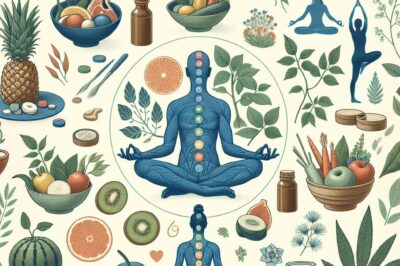Key Takeaways
- Hugging can significantly reduce stress by lowering cortisol levels in the body.
- Frequent hugs can boost the immune system, reducing the likelihood of illness.
- Oxytocin, often released during hugs, is known to enhance feelings of trust and bonding.
- Hugging has been shown to lower heart rate and blood pressure, contributing to heart health.
- Experts suggest 8-12 hugs a day to maintain emotional and physical well-being.

“How Do I Draw People Hugging in an …” from letsdrawtoday.com and used with no modifications.
The Science Behind Hugging
Hugging is more than just a friendly gesture; it’s a scientifically proven way to boost your health and happiness. When we hug someone, our bodies release a hormone called oxytocin, often referred to as the “love hormone.” This chemical messenger plays a crucial role in social bonding and emotional connection.
The Psychological and Physical Bonding
When you embrace someone, a cascade of physiological responses occurs. First, hugging stimulates the release of oxytocin, which helps reduce stress and anxiety. This hormone not only makes us feel closer to the person we are hugging but also enhances our overall mood. It’s like a natural antidepressant.
In a study conducted at Carnegie Mellon University, participants who received more frequent hugs were less likely to get sick, even when exposed to the common cold virus. This suggests that hugging can bolster the immune system by lowering stress levels.
Besides that, hugs create a sense of security and trust. When you hug someone, your brain interprets this physical touch as a signal of safety and support. This can be especially beneficial in relationships, where regular hugs can strengthen emotional bonds.
Think about the last time you felt upset or stressed. Did a hug help you feel better? That’s because hugging decreases cortisol, the stress hormone, which in turn helps your body relax. It’s a simple yet powerful way to enhance your mental and physical health. Learn more about the benefits of hugging.
Role of Oxytocin in Connection
Oxytocin is a key player in the science of hugging. Often called the “cuddle hormone,” it is released during physical touch, such as hugging or holding hands. This hormone is essential for forming social bonds and fostering feelings of trust and empathy.
Most importantly, oxytocin has been linked to increased generosity and compassion. When you hug someone, you are not just making them feel good; you are also fostering a sense of community and connection. This can have far-reaching effects on your relationships and overall well-being.
The Influence on Serotonin Levels
In addition to oxytocin, hugging also influences serotonin levels in the brain. Serotonin is a neurotransmitter that helps regulate mood and social behavior. Higher levels of serotonin are associated with feelings of happiness and well-being.
Therefore, when you engage in regular hugging, you are naturally boosting your serotonin levels, which can lead to improved mood and reduced symptoms of depression. It’s like giving your brain a little happiness boost each time you hug someone.
The Therapeutic Magic of Daily Hugs
Imagine starting your day with a hug. It’s a simple act that can set the tone for the entire day, providing emotional warmth and a sense of belonging. The benefits of daily hugs are numerous and can be felt almost immediately.
Hugs offer a non-verbal way to communicate care and affection. They can bridge gaps in communication and provide comfort when words are not enough. This makes hugging an essential tool in maintaining healthy relationships and personal well-being.
Number of Hugs Recommended
So, how many hugs do we really need each day? According to family therapist Virginia Satir, “We need four hugs a day for survival, eight hugs for maintenance, and twelve hugs for growth.” While this might sound like a lot, incorporating more hugs into your daily routine can have a profound impact on your health and happiness.
Daily Health Benefits of Hugging
Hugging is not just a simple act of affection; it’s a powerful tool that can enhance your health in various ways. When you hug someone, your body releases a cocktail of hormones and neurotransmitters that can improve your physical and emotional well-being. These benefits are not just theoretical; they are backed by scientific research and real-world experiences.
In today’s fast-paced world, stress is a common issue that many people face. Hugging can be an effective way to combat stress, providing a moment of calm and connection in a busy day. It’s a natural, drug-free way to boost your mood and improve your overall health.
Boosting Immune System Through Physical Contact
One of the most remarkable benefits of hugging is its ability to boost the immune system. Physical contact, such as hugging, triggers the release of oxytocin, which in turn reduces stress and promotes relaxation. This reduction in stress can help your immune system function more effectively, making you less susceptible to illness.
A study conducted at Carnegie Mellon University found that people who received more frequent hugs were less likely to catch a cold. The study suggests that the stress-reducing effects of hugging may play a significant role in enhancing immune function. So, the next time you’re feeling under the weather, consider reaching out for a comforting hug.
Heart Health Benefits
Hugging can also have a positive impact on heart health. When you hug someone, your heart rate and blood pressure tend to decrease. This is because hugging activates the parasympathetic nervous system, which promotes relaxation and reduces stress.
In one study, participants who hugged their partners regularly had lower blood pressure and heart rates compared to those who did not. These findings suggest that hugging can be a simple yet effective way to support cardiovascular health. So, if you’re looking for a heart-healthy habit, consider incorporating more hugs into your daily routine. For more insights, you can explore why you should get (and give) more hugs.
Stress Relief and Emotional Balance
Stress is a natural part of life, but too much stress can take a toll on your physical and mental health. Hugging is a powerful stress-relief tool that can help you find balance in your life. When you hug someone, your body releases endorphins, which are natural mood boosters.
Besides that, hugging provides a sense of security and comfort. It can help you feel grounded and supported, even during challenging times. Whether you’re dealing with a tough day at work or a personal issue, a hug can be a simple yet effective way to find emotional balance and relief.
Understanding the Emotional Connection
Hugs are more than just physical gestures; they are a way to connect with others on a deeper emotional level. When you hug someone, you are communicating care, empathy, and support without saying a word. This emotional connection can have a profound impact on your mental health and relationships.
Impact of Hugs on Mental Health
Hugging can be a powerful tool for improving mental health. Physical touch, such as hugging, triggers the release of oxytocin and serotonin, which are chemicals that promote feelings of happiness and well-being. These chemicals can help reduce symptoms of anxiety and depression, making hugging a natural mood enhancer. For more insights, explore the benefits of hugging on mental health.
In addition, hugging can help reduce feelings of loneliness and isolation. When you hug someone, you are reminded that you are not alone and that you have a support system. This can be incredibly reassuring and comforting, especially during difficult times.
The Role of Hugs in Building Relationships
Hugs play a crucial role in building and maintaining relationships. They are a way to express love, affection, and appreciation, strengthening the bond between individuals. Regular hugs can help improve communication and trust, making relationships more fulfilling and meaningful.
In a world where digital communication often takes precedence, physical touch, such as hugging, can provide a much-needed sense of connection and intimacy. So, whether it’s a hug from a friend, family member, or partner, embracing the power of hugs can enhance your relationships and overall well-being.
Conclusion: Embrace the Power of Hugs
Hugging is a simple yet powerful way to improve your health and happiness. By incorporating more hugs into your daily routine, you can experience a wide range of benefits, from reduced stress and improved heart health to stronger relationships and enhanced mental well-being. Understanding the importance of healthy boundaries can also enhance the positive effects of hugging in relationships.
Encouragement to Hug More Often
I encourage you to embrace the power of hugs and make them a regular part of your life. Whether it’s a quick hug with a friend or a long embrace with a loved one, take the time to connect with others through this simple yet meaningful gesture. Your body and mind will thank you for it. For more information on the benefits of hugging, explore how it can positively impact your well-being.
Summary of Key Points
Hugging is a simple yet powerful act that offers a wide array of health benefits. It can significantly reduce stress by lowering cortisol levels and promote a sense of well-being through the release of oxytocin and serotonin. Regular hugging has been shown to boost the immune system, enhance heart health, and foster emotional connections. Experts recommend 8-12 hugs a day to maintain optimal health and happiness. Embracing this habit can lead to stronger relationships and improved mental and physical health.
Final Thoughts on Hugging and Well-being
Incorporating more hugs into your daily life is a natural and effective way to enhance your overall well-being. The science behind hugging is clear: it reduces stress, strengthens your immune system, and supports heart health. More importantly, it fosters emotional connections that are vital for mental health and relationship satisfaction. For more information, check out why you should get (and give) more hugs.
By making a conscious effort to hug more often, you can improve your quality of life and the lives of those around you. Whether it’s a quick hug with a friend or a longer embrace with a loved one, each hug can make a meaningful difference. So, go ahead and embrace the power of hugs as a simple yet profound way to promote holistic health and happiness.
Frequently Asked Questions (FAQ)
Let’s dive into some common questions about hugging and its benefits. Understanding these can help you make the most of this simple yet effective practice.
How many hugs a day are beneficial?
According to experts like family therapist Virginia Satir, we need four hugs a day for survival, eight hugs for maintenance, and twelve hugs for growth. While these numbers might seem high, they emphasize the importance of regular physical touch for emotional and physical well-being.
Why do hugs make us feel better?
Hugs trigger the release of oxytocin, often called the “love hormone,” which promotes feelings of trust, bonding, and happiness. Additionally, hugs increase serotonin levels, which are associated with mood regulation and feelings of well-being. This combination of hormonal responses helps us feel better both emotionally and physically.
Moreover, hugging reduces the levels of cortisol, the stress hormone, which can have a calming effect on the body. This reduction in stress can lead to improved mood and a greater sense of relaxation.
Can hugging really boost heart health?
Yes, hugging can indeed boost heart health. When you hug someone, your body releases hormones that reduce stress and promote relaxation. This leads to lower heart rates and blood pressure, which are beneficial for cardiovascular health. Regular hugging can therefore contribute to a healthier heart and reduced risk of heart-related issues.
Are there cultural differences in hugging practices?
Hugging practices can vary widely across different cultures. In some cultures, hugging is a common form of greeting and affection, while in others, it may be reserved for close family and friends. Understanding and respecting these cultural differences is important in ensuring that hugging is a comfortable and positive experience for everyone involved.
For example, in many Western cultures, hugs are a common form of greeting and farewell. In contrast, some Asian cultures may prefer a bow or handshake as a more appropriate form of greeting. Being aware of these differences can help you navigate social interactions more effectively.
What is the connection between hugging and stress reduction?
Hugging is a powerful stress-relief tool because it triggers the release of oxytocin and reduces cortisol levels. Oxytocin promotes feelings of trust and bonding, while lower cortisol levels lead to decreased stress and anxiety. This combination makes hugging an effective way to find emotional balance and relief.
Additionally, the physical act of hugging provides a sense of security and comfort, which can help you feel grounded and supported. This is especially beneficial during times of stress or emotional turmoil, making hugging a valuable tool for managing stress and promoting overall well-being.










Leave a Reply